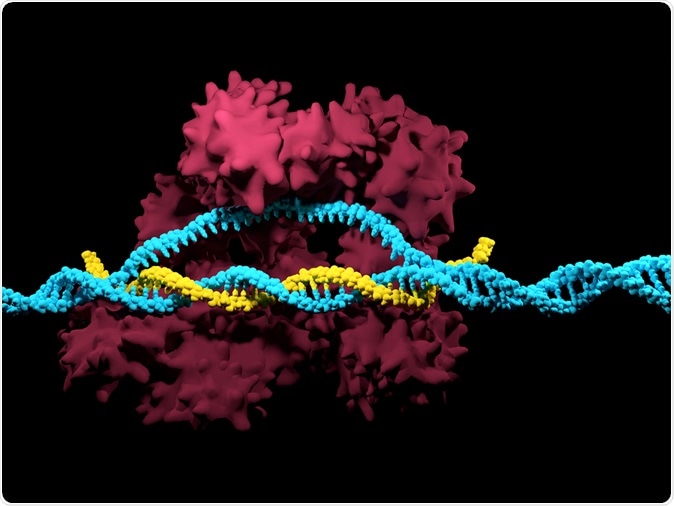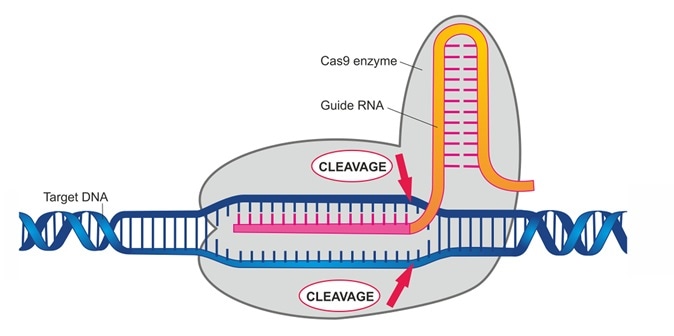A new survey from Pew Research Center has found that nearly half of the surveyed Americans believe that in the coming 50 years, nearly all genetic birth defects could be eliminated due to advances in gene editing.

CRISPR-Cas9. Image Credit: Meletios Verras
Most of the participants in the survey however are not comfortable with how this genetic modification would impact the society. This new survey included a representative population survey of over 2,500 Americans and was conducted in April and May this year.
Results from the survey showed that 58 percent of the population believes that uncontrolled gene editing could increase inequality because these tools would be only available to the rich. A further 54 percent of the population believes that gene editing could jeopardize moral and ethical principles in scientific practice and give rise to unacceptable experiments.
Only around 18 percent of the Americans believe that gene editing could mean new advances in medical science and could benefit the society. Similarly only around 16 percent feel that gene editing practices could help people live longer and have a better quality of life.

CRISPR/Cas9 enzyme system for genome editing in genetic engineering. Image Credit: Soleil Nordic / Shutterstock
Around 46 percent of the Americans believe that gene editing would become a common practice even before humans have understood its full implications. Around one third of all the participants believe that gene editing and designer genetic babies may not come into practice any time soon.
In the survey the team of researchers noted that 16 percent had never heard of gene editing and its potentials. Among those who are familiar with gene editing, 64 percent believe in its downsides and that it would benefit only the wealthy. Of those who have no notion about gene editing, 53 percent feel that it could give rise to inequality among the rich and the poor.
The survey took into account the gender of the participants and noted that women were more sceptical about gene editing in future compared to men. They noted that 63 percent women compared to 52 percent men believed that gene editing in future could give rise to inequalities.
Future moral digressions due to unethical practices were feared by 57 percent women compared to 51 percent men. Men feel that gene editing could bring scientific advances more frequently than women and men also feel that gene editing is an appropriate use of medical technology.
When asked if gene editing tools could and should help create more intelligent babies, nearly 80 percent disagreed. When explained that gene editing would mean working on human embryos and editing and selecting the best embryo, most participants disagreed with the appropriateness of this technology.
Cary Funk, lead author of the study and the director of science and society research at Pew Research Center said that almost all participants from different age groups, gender, educational and income background as well as region and religious backgrounds agreed that gene editing to make babies more intelligent would be inappropriate.
Gene editing tool widely used is the CRISPR-Cas9 that can find, delete, and replace the faulty and chosen genes in any living organism. At present gene editing to make babies without any genetic effects is still in hypothetical stages. Researchers believe that it could help correct potentially fatal genetic mutations.